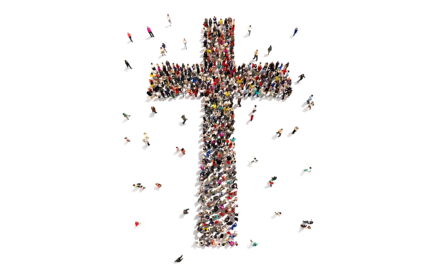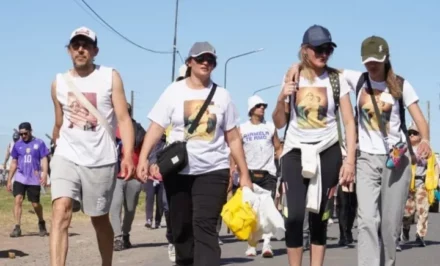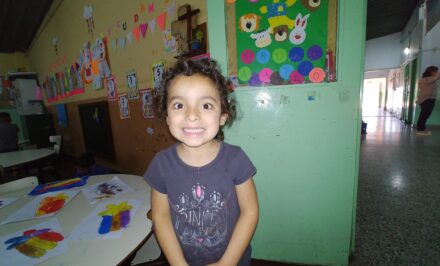 org. Every part of the Church, and many others outside of her – believers or non-believers – have received Pope Francis` clear and hope-filled words. They are also words that motivate us to assume the responsibility we all have to build a world in accordance to the Will of God, in the strength of the Spirit and through the way of Christ. Cardinals and bishops, priests, men and women religious, novices and seminarians, families, the youth and elderly, communities and institutes have received this challenge to go out “onto the street” to take – not a utopian hope – but concrete deeds in living evangelization projects to all men and women wherever they may be. And if they are on the “outskirts” then we have to go there, with all the risks and dangers it may include. He repeats to us constantly: I prefer an injured church, because she goes out to serve, to a Church that is sick because of her self-absorption. Testimony to this can be found in the section of Schoenstatt.org where on a weekly basis texts are selected which motivate us on our own pilgrimage toward the 2014 Jubilee. Undoubtedly, because we are the Church, these words are also directed to us. How happy must our Father not be with this missionary impetus which is given to us from the very heart of the Church! (Fr. José María García)
org. Every part of the Church, and many others outside of her – believers or non-believers – have received Pope Francis` clear and hope-filled words. They are also words that motivate us to assume the responsibility we all have to build a world in accordance to the Will of God, in the strength of the Spirit and through the way of Christ. Cardinals and bishops, priests, men and women religious, novices and seminarians, families, the youth and elderly, communities and institutes have received this challenge to go out “onto the street” to take – not a utopian hope – but concrete deeds in living evangelization projects to all men and women wherever they may be. And if they are on the “outskirts” then we have to go there, with all the risks and dangers it may include. He repeats to us constantly: I prefer an injured church, because she goes out to serve, to a Church that is sick because of her self-absorption. Testimony to this can be found in the section of Schoenstatt.org where on a weekly basis texts are selected which motivate us on our own pilgrimage toward the 2014 Jubilee. Undoubtedly, because we are the Church, these words are also directed to us. How happy must our Father not be with this missionary impetus which is given to us from the very heart of the Church! (Fr. José María García)
![]()
WEEK 15/2014
May we never get used to the poverty and decay around us. A Christian must act.
Tweet from 3.4.2014

Marriage is a symbol and also a human reality of the relationship between God and his people. When marriage is destroyed by adultery, this relationship between God and his people is sullied. But the scribes and the Pharisees posed this question so that they could have a reason to accuse him. If Jesus had said: “Yes, yes, go ahead with the stoning,” they would have told the people: “So this is your good master…look at what he has done to this poor woman!” And if Jesus had said: “No, poor woman! Forgive her,” they would have said: “He does not follow the law.” They were not concerned with the woman, they did not care about the adulterers, perhaps one of them was an adulterer…They did not care! They only wanted to set a trap for Jesus! And so the Lord’s answer: “Whoever among you is without sin, let him throw the first stone at her!” With a certain degree of irony, the Gospel says that the accusers left, one by one, starting with the oldest. We can see that those who were at heaven’s door had a good running account against them. And Jesus remains alone with the woman, as a confessor, saying to her: “Woman, where are they? Has nobody condemned you? Where are they? We are alone, you and me. You are standing before God, without accusations, without gossip. You and God! Has nobody condemned you?” The woman responds: “Nobody, Lord.” But she does not say, “It was a false accusation! I didn’t commit adultery!” She acknowledges her sin. And Jesus says: “Neither do I condemn you! Go, go and from now on, do not sin again, so that you do not have to go through more unpleasant moments like this, so that you do not have to experience such shame, so that you do not offend God, so that you do not sully this beautiful relationship between God and his people. Jesus forgives!
Santa Marta, 7.4.2014
But there is something more than forgiveness: Jesus overcomes the law and goes beyond it. He does not say: “Adultery is not a sin.” He does not say this. But he does not condemn her with the law. And this is the mystery of mercy. It is the mystery of Jesus’ mercy. Mercy is something that is difficult to understand. “But Father, does mercy wipe out my sins?” No, what wipes out sins is God’s forgiveness! Mercy is the way in which God forgives us. Because Jesus could say: “I forgive you, go!” as he said to the paralysed man who was lowered from the roof: “Your sins are forgiven!” Here he says: “Go in peace!” Jesus goes even further. He counsels her not to sin again. This is where we see Jesus’ merciful attitude: he defends the sinner from her enemies, he defends the sinner from a just sentence. Also with us, how many of us should perhaps go to hell, how many of us? And this sentence is just…and He forgives beyond this. How? With this mercy! Mercy goes deep and shapes the life of a person in such a way that sin is put aside. It is like the sky: when we look at the sky, so many stars, so many stars; but when the sun appears in the morning, with so much light, we cannot see the stars. And so with God’s mercy: a great light of love, of tenderness. God forgives not with a decree but with a tender touch, caressing our wounds brought about by sin. Because he is involved in the forgiveness, he is involved in our salvation. And so Jesus is a confessor: he does not humiliate, he does not say: “What have you done, tell me! And when did you do it? And how did you do it? And with whom did you do it?” No! “Go, go and from now on do not sin again.” God’s mercy is great, Jesus’ mercy is great. Forgive us! Caress us!
Santa Marta, 7.4.2014
The Gospel on this fifth Sunday of Advent tells us the story of how Lazarus was raised from the dead. It is the high point in the monumental “signs” that Jesus performed: It is a very big gesture, too obviously divine to be tolerated by some of the priests, who when they heard about what had happened, took the decision to kill Jesus (Jn 11.53). Lazarus had been dead for three days when Jesus arrived and told the sisters Martha and Mary the words that have been engraved ever since in the memory of the Christian community: “I am the resurrection and the life. The one who believes in me will live, even though they die.” (Jn 11.25) From our Lord’s words, we believe that the life of whoever believes in Jesus and follows his commandments will be transformed into a new life after death, a full and immortal life. Just as Jesus rose with his own body, but did not return to an earthly life, so too we will rise in our bodies which will be transfigured into glorious bodies. He is waiting for us, together with the Father, and the power of the Holy Spirit, which resurrected him, will also resurrect those who are united to Him.
Angelus, 6.4.2014
 Christ does not resign himself to the tombs we have built with our choices for evil and death, our mistakes, our sins. No, he does not resign himself to this! He invites us, almost orders us, to come out of the tomb into which we have been buried by our sins. He insistently calls us to leave the darkness of the prison in which we are buried, resigning ourselves to a life that is false, self-centered, mediocre. “Come out!” he tells us. “Come out!” It is a beautiful invitation towards true freedom. Let us cling to these words that Jesus repeats today to each one of us. An invitation to free ourselves from the “bandages,” the bandages of pride. Because pride makes us slaves, slaves to ourselves, slaves to so many idols, so many things. Our resurrection begins there: when we decide to obey Jesus’ command to come out into the light, to life; when the masks fall from our faces – so often we are masked by sin, the masks should fall! And we find the courage of our original face, created in the image and likeness of God. Jesus act of raising Lazarus from the dead shows how far the power of God’s grace can go, and can even bring about our conversion, our transformation. But listen well: there is no limit to the divine mercy that is offered to everyone! There is no limit to the divine mercy that is offered to everyone! Remember this sentence well. And we can say it all together: There is no limit to the divine mercy that is offered to everyone! Let us say it together: There is no limit to the divine mercy that is offered to everyone! The Lord is always ready to roll away the tombstone of our sins that separate us from Him, light of those who are alive.
Christ does not resign himself to the tombs we have built with our choices for evil and death, our mistakes, our sins. No, he does not resign himself to this! He invites us, almost orders us, to come out of the tomb into which we have been buried by our sins. He insistently calls us to leave the darkness of the prison in which we are buried, resigning ourselves to a life that is false, self-centered, mediocre. “Come out!” he tells us. “Come out!” It is a beautiful invitation towards true freedom. Let us cling to these words that Jesus repeats today to each one of us. An invitation to free ourselves from the “bandages,” the bandages of pride. Because pride makes us slaves, slaves to ourselves, slaves to so many idols, so many things. Our resurrection begins there: when we decide to obey Jesus’ command to come out into the light, to life; when the masks fall from our faces – so often we are masked by sin, the masks should fall! And we find the courage of our original face, created in the image and likeness of God. Jesus act of raising Lazarus from the dead shows how far the power of God’s grace can go, and can even bring about our conversion, our transformation. But listen well: there is no limit to the divine mercy that is offered to everyone! There is no limit to the divine mercy that is offered to everyone! Remember this sentence well. And we can say it all together: There is no limit to the divine mercy that is offered to everyone! Let us say it together: There is no limit to the divine mercy that is offered to everyone! The Lord is always ready to roll away the tombstone of our sins that separate us from Him, light of those who are alive.
Angelus, 6.4.2014
Throughout salvation history the prophets have been persecuted. Always in salvation history, in the times of Israel, also in the Church, the prophets have been persecuted. Persecuted because prophets say: “You are on the wrong path! Return to God’s way.” And those people who have power over those bad ways, they don’t like this…And Jesus was persecuted from the start: we recall that at the start of his ministry, he returns to his people, he goes to the synagogue and preaches. Immediately after great initial admiration, they began to ask: “But do we know where he comes from? Is he one of us? But with what authority does he come to teach us? Where did he study?” They discredited him. It was the same speech, no? But we know where he comes from! When the Christ comes, nobody will know where he comes from! They discredited the Lord, they discredited the prophet to take away his authority! The discredited him because Jesus left and had others also leave that closed religious environment, that prison cell. The prophet battles against those who imprison the Holy Spirit. And this is why they are persecuted, always! Prophets are always persecuted, misunderstood, cast aside. There is no place for them! This situation did not end with Jesus’ death and resurrection, it continues in the Church! Harassment from the outside and persecution from within. When we read the lives of the saints, how many of them were misunderstood, what persecutions the saints suffered, because they were prophets.
Santa Marta, 5.4.2014
So many Church thinkers were persecuted. I am thinking of one, now, not far from us, a man of goodwill, a true prophet, who with his books reproached the Church for distancing itself from God’s way. He was called to order, his books were placed in the index, they away took his chair and for this man, life ended: do not make much of this. Time passed and today he has been beatified! How is it that he was a heretic yesterday and today he is beatified? Because yesterday those who held power wanted to silence him, because they did not like what he said. Today the Church, which thanks to God knows how to repent, says: “No, this is a good man!” And what is more, he is on the path of sanctity: he has been beatified. Everyone whom the Holy Spirit calls to tell the truth to the people of God suffer persecution. And Jesus is the model, the image. The Lord took upon himself all of the persecutions of his people. And even today, I see Christians are being persecuted. I would dare to say that there are perhaps just as many martyrs today as there were in the beginning [of Church history], because to this worldly society, this overly relaxed society that avoids problems, they tell the truth, they announce Jesus Christ. And this history of persecution, emphasizes Jesus’ way, it is the way of those who follow the Lord. But, in the end, it always ends again: with the Resurrection, but which passed hrough the Cross! There will always be persecutions, misunderstandings! But Jesus is the Lord, and this is the challenge and the Cross of our faith. May the Lord give us the grace to follow on his path, and if it should happen, also the cross of persecution.
Santa Marta, 5.4.2014
And now I would like to extend a simple gesture towards you. Over the last few Sundays, I have suggested that you get a small Gospel, to take one with you throughout the day so that you can read a little bit of it. I then remembered an old tradition in the Church, to hand out the Gospel to the catechumens during Lent, to those who are preparing for Baptism. And so today I want to give all of you who are in the Piazza – but as a sign for all – a pocket Gospel. It will be distributed free of charge. There are distribution points in the square. I can see them: there, there, there, there…Go to these points and take a Gospel. Take it, take it with you, and read it each day: it is Jesus who speaks to you there! It is the word of Jesus: it is the Word of Jesus! And as he told them: you have received freely, freely give! Give the message of the Gospel! There are some of you who don’t believe that this is free: “When must I give? How much must I pay, Father?” Let us do something, in exchange for this gift, make an act of charity, an act of selfless love, a prayer for enemies, reconciliation with something…Today we can read the Gospel with many technological tools. We can take the Bible with us on our cellphones, our tablet. What is important is to read God’s word, with all the mediums available, but to read the Word of God: it is Jesus who speaks to us there! It is to welcome it with an open heart. Then the good seed will bear fruit!
Angelus, 6.4.2014
See all texts in “Francis for the Pilgrims 2014”
Message for World Youth Day 2014
![]()
The aim of the pilgrimage
is the renewal of the covenant of love
as a missionary and unifying creative force,
i.e. internally the renewal of the Schoenstatt Family
and externally the shaping of covenant culture.













